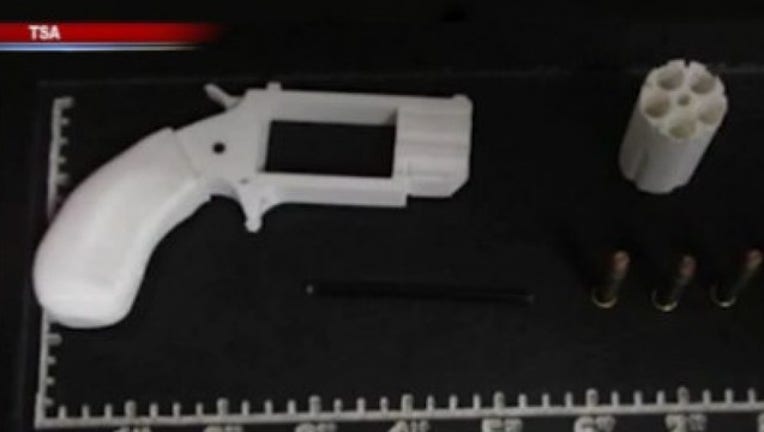States aim to stop internet release of 3D-printed gun plans

SEATTLE (AP) - A federal judge in Seattle hearing arguments over a settlement that allows a Texas company to post online plans for printing 3D guns said Tuesday the overall issue of such untraceable plastic weapons should be decided by the president or Congress.
U.S. District Judge Robert Lasnik said he'll rule by Monday on the legal issues involving the settlement between the company and the Trump administration. He added, however, that "a solution to the greater problem is so much better suited to the other two branches of government."
Nineteen states and the District of Columbia sued the federal government, alleging it reached a "covert" settlement with the company, Defense Distributed, without notifying Congress or the Department of Defense about changes it made to an export act that prohibited 3D gun plans from being posted online.
The Austin-based company is owned by Cody Wilson, a self-described "crypto-anarchist" who opposes restrictions on gun ownership.
Lasnik granted a restraining order on July 31 that blocked the immediate release of the plans online.
The states want him to make it permanent.
Washington state Assistant Attorney General Jeff Rupert argued that the government's decision to allow the posting threatens public safety and should be reversed.
Any felon or terrorist with a laptop and a 3D printer could start making firearms that can't be seen by a metal detector, leaving airports, courthouses, jails and many government buildings and schools -- vulnerable, he said.
Lasnik made it clear that he was frustrated that he only had a few days to make decisions on "probably the most significant case that I've handled as a United States District Court judge."
He added, "I really hope and wish that the executive branch and Congress would face up to this."
More than a dozen members of the Washington Chapter of Moms Demand Action for Gun Sense in America filled half the courtroom during the hearing wearing red T-shirts. They later said they agreed that the answer lies in Washington, D.C.
"We do believe in the right to own a gun, but we also believe in this country our rights rest of a foundation of shared responsibility to keep all members of society safe," group spokeswoman Sue Whitecomb said. "And we believe that is the job of Congress."
Rupert told the judge that the U.S. State Department put the public at risk when it made changes to a list of weapons that could be exported, opening the door for the online posting of 3D gun plans and the settlement with Defense Distributed.
The federal government fought the release of the plans when they were first posted online in 2013, arguing it was a threat to national security, Rupert said. That threat remains despite the government's decision to deregulate 3D gun printing.
Steven Myers, a lawyer for the U.S. Justice Department disagreed, saying it's already illegal to possess plastic guns and the government is fully committed to enforcing that law. He argued that the states are focused on the wrong statute and the injunction should be denied.
Lasnik questioned that logic, asking how the government can be "vigorously" enforcing a law banning plastic guns but not proactively stopping the undetectable, untraceable guns from being made in the first place.
"People who don't have our best interests in mind can get these guns," which could lead to "shoe bomber" or "911 situations," Lasnik said.
Those who would fail a background check, such as mentally ill people or felons, would be able to make a gun if they had access to a 3D printer, he said.
"We see children shoot other children with what they think are toy guns," he said, "and the 3D guns look even more like toy guns."
The restraining order expires on Aug. 28.
The states suing are Washington, Connecticut, Maryland, New Jersey, New York, Oregon, California, Colorado, Delaware, Hawaii, Illinois, Iowa, Minnesota, North Carolina, Rhode Island, Vermont, Virginia, Massachusetts, Pennsylvania and the District of Columbia.

